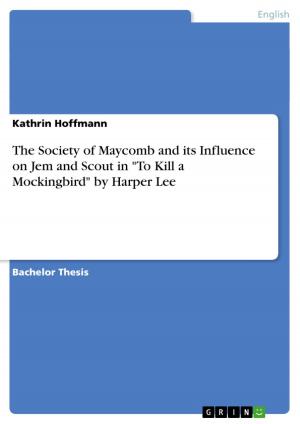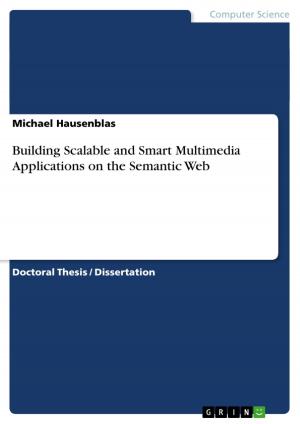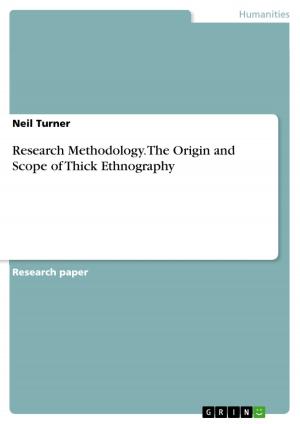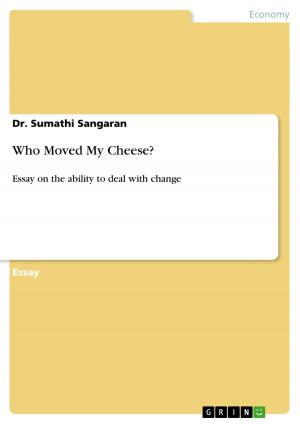Process of change within family structures
Nonfiction, Social & Cultural Studies, Social Science, Sociology| Author: | Bruno Rihs | ISBN: | 9783638883764 |
| Publisher: | GRIN Publishing | Publication: | January 3, 2008 |
| Imprint: | GRIN Publishing | Language: | English |
| Author: | Bruno Rihs |
| ISBN: | 9783638883764 |
| Publisher: | GRIN Publishing |
| Publication: | January 3, 2008 |
| Imprint: | GRIN Publishing |
| Language: | English |
Research Paper (undergraduate) from the year 2007 in the subject Sociology - Work, Profession, Education, Organisation, University of Sheffield (Hallam University Sheffield ), 15 entries in the bibliography, language: English, abstract: In this paper, the author is going to look at the different perspectives on change. He is trying to link them with his work experience as a change agent in the field of education and family counselling. He looks at the role of different disciplines in achieving change and evaluates the implications for a personal practice. He concludes the assignment with guidelines to act as an effective change agent. Those implications will show the complexities of the different aspects of change. Although most of the models are focused on management and business we can see, that there are many interesting similarities to the process of change in family structure. Names of models and exponents may be different but the nature of change stays the same. What the author takes out of this consideration is that change is a continuous process that goes through a series of phases. Every phase means a challenge with new experiences and new opportunities to learn. As learning is an individual process and individuals are responsible for controlling and managing their own process of change. With the tendency to measure and to analyse all appearances in the world (processes of change included) we always react on the surface of the world. We are in danger to neglect the immeasurable aspects like feelings, attitudes and values, culture and norms. Different and contrasting perceptions of the reality are possible and correct. The either-or mentality is no longer valid and must be replaced by the 'as well as' approach. Between the sky and the earth there exist unexplainable things of which we probably will never know how they work. Nevertheless we can use different approaches.
Research Paper (undergraduate) from the year 2007 in the subject Sociology - Work, Profession, Education, Organisation, University of Sheffield (Hallam University Sheffield ), 15 entries in the bibliography, language: English, abstract: In this paper, the author is going to look at the different perspectives on change. He is trying to link them with his work experience as a change agent in the field of education and family counselling. He looks at the role of different disciplines in achieving change and evaluates the implications for a personal practice. He concludes the assignment with guidelines to act as an effective change agent. Those implications will show the complexities of the different aspects of change. Although most of the models are focused on management and business we can see, that there are many interesting similarities to the process of change in family structure. Names of models and exponents may be different but the nature of change stays the same. What the author takes out of this consideration is that change is a continuous process that goes through a series of phases. Every phase means a challenge with new experiences and new opportunities to learn. As learning is an individual process and individuals are responsible for controlling and managing their own process of change. With the tendency to measure and to analyse all appearances in the world (processes of change included) we always react on the surface of the world. We are in danger to neglect the immeasurable aspects like feelings, attitudes and values, culture and norms. Different and contrasting perceptions of the reality are possible and correct. The either-or mentality is no longer valid and must be replaced by the 'as well as' approach. Between the sky and the earth there exist unexplainable things of which we probably will never know how they work. Nevertheless we can use different approaches.















